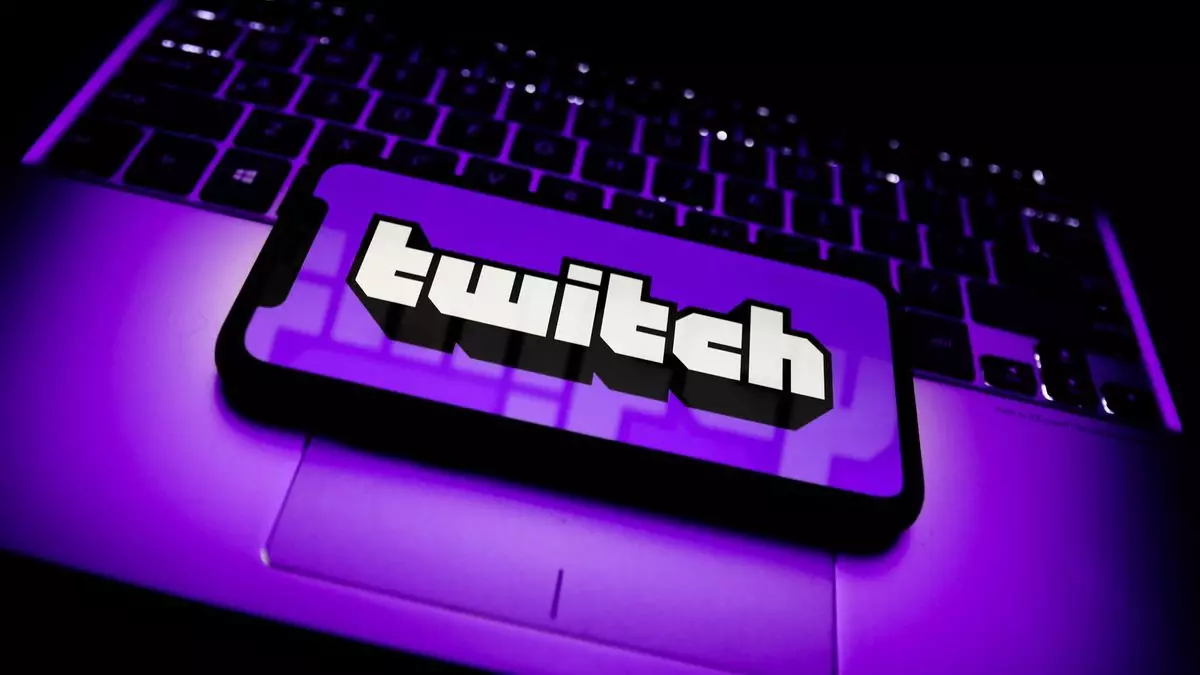In the fast-paced world of online streaming, Twitch has often found itself at the center of controversy, particularly concerning how it regulates discussions around sensitive social issues and politics. Just recently, Twitch attempted to clarify its content classification policy, initiated to address alarming trends of hate speech and discrimination on the platform. However, the reactions from the streaming community indicate that this attempt may have only scratched the surface of a more profound issue.
Twitch’s original policy required streams covering subjects like politics and sensitive social issues to carry a content classification label (CCL). This move came against a backdrop of escalating allegations of racism, particularly relating to cases such as Zack “Asmongold” Hoyt’s ban following his remarks on Palestinians and the apparent dismissal of complaints from Arab creators. Simple as it may seem, this policy’s implementation amounted to a significant shift for content creators, especially those whose streams could easily be categorized as “political” simply by addressing their personal experiences.
The CEO of Twitch, Dan Clancy, firmly stated that there was “no place on Twitch for racism, hatred, or harassment of any kind,” seeking to assure users that the platform was serious about tackling these issues. However, the immediate consequence of the new policy caused unease among LGBTQ+ streamers, who feared that their lived experiences might be categorized as “political.” This underlying tension hints at a failure to consistently recognize the nature and significance of marginalized voices within the Twitch community.
Less than a week after the policy’s rollout, Twitch sought to address rising dissent by allowing exceptions for streamers discussing their “lived experience.” The platform clarified that a CCL label was not necessary for personal narratives—a useful distinction, indeed. Nonetheless, the confusion around what constitutes “lived experience” versus political commentary remains. It’s a delicate balance: how do you define when a discussion shifts from personal insight to societal critique?
The response to Twitch’s clarification has been mixed. Many community members appreciate the attempt to differentiate between personal stories and political statements, yet others argue that these changes do not adequately protect marginalized groups who face backlash purely for sharing their experiences. Comments from users indicate a strong desire for clearer, more robust protections against the targeting of vulnerable streamers, as reports of content misinterpretation proliferate.
One of the contentious changes in Twitch’s revised guidelines was the removal of specific topics listed as sensitive content. Instead, a vague directive now states that a label is mandatory if discussions surrounding race, gender, sexuality, or religion are conducted “in a polarizing or inflammatory manner.” This ambiguity creates a problematic landscape—who defines what is polarizing? A streamer discussing their own right to healthcare or their identity may find themselves scrutinized under this vague criterion, opening doors for mass reporting driven by partisan agendas.
The psychological strain this puts on affected creators is considerable. LGBTQ+ individuals, especially, navigate a dual landscape. On one hand, their identities are political in societies still rife with discrimination. On the other hand, advocacy for their own rights often leads to mischaracterizations as radical political statements—potentially damaging their content’s reach and monetization opportunities.
Community reactions have been robust and unforgiving. For instance, one notable Post on Twitch’s UserVoice feedback forum received over 38,000 votes advocating for the removal of controversial classifications, demonstrating widespread dissatisfaction with the policy changes. Critiques centered around the idea that defining human rights issues as “political” effectively endorses the marginalization and censorship of those impacted by such issues.
Beyond the internal ramifications on Twitch conveiving this policy, a broader societal reflection emerges. Livelihoods and safety are at stake, fundamentally impacting creators who, out of necessity, must self-censor their authentic narratives to make room for commercial interests. As Austin “Gremloe” MacNamara stated, often the mere existence of a minority in predominant spaces is simultaneously a political statement. This calls into question the overall efficacy of Twitch’s approach to moderation, leaving the community to wonder what concerted action would adequately protect its members.
As Twitch continues to navigate these murky waters, both streamers and executives must engage in honest dialogue about what constitutes safe spaces within the community. It’s essential for the platform to grapple with the implications of classifying certain identities and experiences as political, lest it risks perpetuating systemic inequalities and silencing critical conversations.
The path forward must prioritize clarity and protection, ensuring that marginalized voices are not only welcomed but celebrated on the platform. As conversations around the effectiveness of current policies unfold, Twitch will need to remain receptive to community feedback and adept at adjusting its approach to establish a truly inclusive environment.

